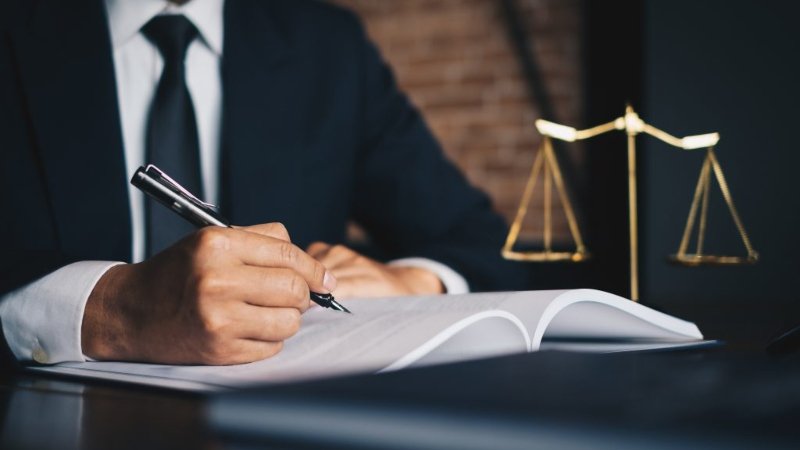Did you know that, according to the Institute for the Advancement of the American Legal System, state trial courts deal with more than 100 million lawsuits every year, while federal courts handle over 400,000 cases? In the first six months of 2024, a total of 109 lawsuits related to securities were filed in federal courts.
Litigation refers to the legal process of resolving a dispute by presenting it before a court of law. If the parties are unable to come to a mutual agreement regarding the fair and appropriate resolution of a dispute, they will present their individual arguments to a court for its decision.
According to a Roseville litigation lawyer, when you have a complicated business dispute, a personal injury claim, or any charges that need to be handled in court, having a litigation attorney can greatly impact the outcome of your case.
Let’s look into the different aspects and skills that you should look for when choosing an attorney who is suited to your unique case.
Assessing experience and expertise
When you are choosing a litigation attorney, it is important to think about their experience. It usually takes many years of practice to fully grasp the strategies and procedures involved in litigation. A skilled lawyer has the ability to foresee and adjust to changes that may occur in a case.
Property division lawyer Brian Dunmire says cases are constantly being set by courts, which can change legal tactics and how they are interpreted so make sure your attorney specializes in litigation and has a strong background in your case’s law. An attorney with experience in your legal matters can offer better advice and counsel.
When assessing experience and expertise, don’t hesitate to ask for references or examples of past cases the attorney has handled. This information will give you a better sense of their abilities and whether they fit your legal needs.
Evaluating Communication Skills
Effective communication is important in the legal field, as it guarantees that you’re kept informed about your case every step of the way. A good litigation attorney will make sure to explain complex legal concepts to you in a manner that is easy for you to comprehend. They should also be attentive listeners, taking the time to understand your concerns and preferences.
Pay attention to how a potential attorney responds to your questions in order to evaluate their communication abilities. Can they answer clearly? Do you feel heard and understood by their response? Review their legal documents to assess their writing. Writing clearly and neatly is important in litigation.
Understanding Legal Fees and Costs
Before you proceed with legal representation, you must know how the attorney structures their fees. Attorneys charge hourly rates, flat fees for certain services, contingency fees based on the case result, or a combination of these methods. Discuss payment expectations upfront to avoid any surprises later on.
In addition to attorney’s fees, there are other costs associated with litigation that you need to be aware of. These costs, often referred to as ‘disbursements,’ can include court filing fees, expert witness fees, deposition costs, and other expenses related to building your case. Ask your attorney about these potential costs and how they’ll be handled.
Understanding legal fees and costs will help you budget effectively and make informed decisions throughout your legal proceedings. Address this early on with your attorney to ensure a transparent and mutually agreed-upon fee structure.
Checking client reviews and testimonials
When considering hiring a litigation attorney, it is a good idea to take a look at client reviews and testimonials. This can give you valuable insights into their reputation and the quality of their service. Client reviews provide valuable insights into how the attorney interacts with clients, their track record of success, and the overall satisfaction of their clients. Feedback can provide valuable insights by revealing patterns that may indicate strengths or potential concerns.
Reading testimonials can give you a sense of the attorney’s communication style, negotiation skills, and courtroom demeanor. Positive testimonials highlighting specific achievements or qualities may indicate a good fit for your case. Conversely, multiple negative reviews raising similar concerns should alert you to potential issues.
Google Reviews, Yelp, Avvo, and the attorney’s website are good sources for client feedback. Reviews are helpful, but experience and compatibility should also be examined. Your litigation attorney choice can be improved by reading client evaluations and testimonials.
Verifying credentials and reputation
Make sure to check the credentials of the litigation attorney you are considering to ensure they are qualified and well-regarded. First, you should verify the attorney’s law school, bar association, and litigation certifications. It is important to ensure that your lawyer is licensed in the jurisdiction where your case will be heard.
Make sure to check reviews from clients, legal peers, and professional organizations to get a better understanding of the attorney’s reputation. Schedule consultations with the attorney to evaluate their professionalism, communication style, and suitability. It is important to choose a litigation attorney who has impressive credentials and a solid reputation because it can have a significant impact on your case.
Conclusion
Choosing the right litigation attorney is an important step in ensuring the success of your legal case. Taking the time to thoroughly research and select the best attorney for your unique needs can significantly impact the outcome of your legal proceedings, providing you with the confidence and support you desperately need.
